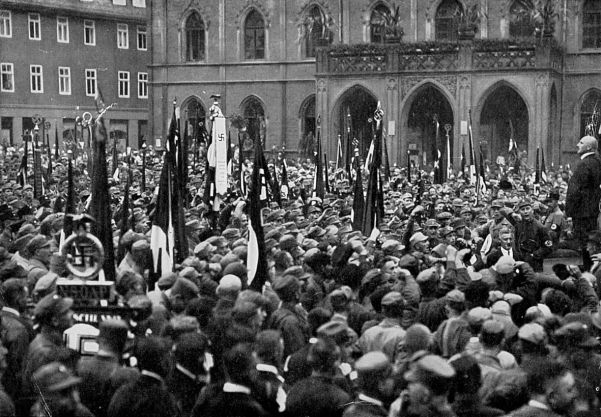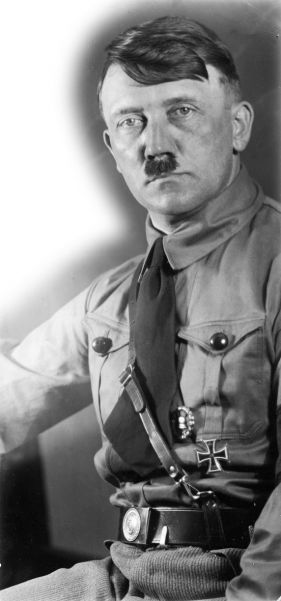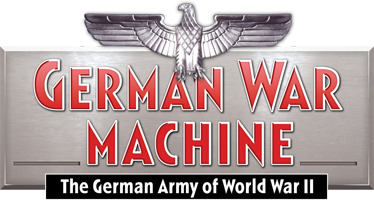July
Nazi Party, Second Party Day

It is at this rally, held in Weimar, that Adolf Hitler turns over the coveted “Blood Flag” to the SS and proclaims the SS to be his élite organization. As such, these small SS units have become the élite units of the SA. It is because of this that the SS is given the honour of bearing the Deutschland Erwache standards of the SA at party meetings and rallies.
September
Nazi Party, Internal Politics

Gregor Strasser is appointed Reich propaganda leader of the NSDAP, and Himmler accompanies him to party headquarters as his secretary. Himmler now finds himself a local party official with command over the tiny SS in his district.
Strasser was de facto leader of the Nazi Party during Hitler’s time in Landsberg. He established the National Socialist Freedom Movement with Ludendorff and Röhm, and also set up a newspaper, the Berlin Workers’ Paper. He appointed Josef Goebbels to be editor.
Goebbels was born the son of a director of a small textile factory in Rheydt, a small industrial town in the Rhineland. His mother was a devout Catholic and he had two brothers and a sister. At four years old he contracted polio and the physician advised immediate surgery, but this could not prevent him having a crippled left leg and foot. This disability remained with him for the rest of his life, and gave rise to him having to wear special shoes, braces and bandages. Because of its visible effects he became a quiet boy who withdrew into himself, not being able to join in games with his brothers, sister or other children. Being physically inferior, the young Goebbels developed his intellectual powers. He would criticize at every opportunity; his continual hateful remarks earned him the reputation of being arrogant and difficult to get along with. When World War I broke out he volunteered for the army, but inevitably was pronounced unfit for military service. He, as many German students of the time, attended no less than eight universities. He became superbly educated in philosophy, Greek and Latin. Slowly, feelings of nationalism began to grow in him, and as a result of this he was alienated from almost everything that surrounded him in these days: his family, hometown, leftist intellectuals, the leftist press and his communist friend of several years standing, Flisges. When he became a nationalist he betrayed everything he had formerly adhered to. His chauvinism was peppered with mysticism. He began to believe that Germany had a special mission to fulfil, and after some time came to the conclusion that non-Germans were by nature inferior and therefore of no importance. In consequence, he broke off all contact with Jews as, according to him they were not German. He once said later: “I treasure an ordinary prostitute above a married Jewess.” In 1922, Goebbels returned to Munich where he studied, and soon became a member of the NSDAP. He became Gregor Strasser’s secretary, the man responsible for NSDAP activities in northern Germany. In 1925 important differences of opinion arose between the National Socialists in the north and those in the south. A meeting was held for all northern party officials. The discussion became so heated that at one point Goebbels cried out: “I propose that the insignificant bourgeois Adolf Hitler be thrown out of the party.” The corruption and the confusing reports about the party in the south had undermined his faith in Hitler and had reached the point of no longer accepting Hitler’s leadership. He led the Gau Ruhr from March 7 to June 20, 1926 with Kaufmann and Pfeffer. On November 9, 1926, he was appointed by Hitler Gauleiter (a Gau was a Nazi Party adminstrative region, each headed by a Gauleiter) for Berlin. Hitler knew only too well that the young intellectual would come into his own in the turbulent streets of the capital. On arriving there Goebbels found a corrupt and divided local NSDAP department. There were hardly any members and the communists and socialists were by far the larger movements. In early 1927, speaking to only 600 party members, he said: “We must break through the wall of anonymity. The Berliner can insult us, slander us, beat us, as long as they talk about us. Today we are 600 strong, but in six years time there will be 600,000 of us.”
As for Gregor Strasser, he regarded himself as an intellectual, and he emphasized the socialist side of Nazism, and called for land nationalization and profit-sharing in industry. He began to wage a war of words with Hitler over this issue. However, at Bamberg in February 1926 Hitler spoke so strongly against the Strasserites that he won over Goebbels to his cause and ended Strasser’s claim to ideological leadership of the party. His Berlin stronghold was put under Göbbels as Gauleiter, who at the same time was given full authority to write party propaganda. To an extent Strasser was mollified by his new position, and giving him charge of party organization used his skills. Nevertheless, Hitler had defeated a major threat.
1 November
Nazi Party, The SA
Hitler places Hauptmann Franz Pfeffer von Salomon as commander of the SA throughout Germany. A condition of Pfeffer von Salomon taking the position is that the SS also comes under the overall authority of the appointed SA leader. Hitler agrees to this because he needs Pfeffer’s influence over the North German SA. Pfeffer von Solomon is unsentimental and a Prussian rather than Bavarian in outlook, and is not taken in by Hitler’s image. “That flabby Austrian”, the taut and austere Pfeffer von Solomon has reportedly called him.
Under Pfeffer, recruitment to the SA continues, largely from the unemployed, bringing the strength from 2000 to over 60,000 by 1930. Many have joined it in the hope that in time it will be absorbed into the army. Röhm has encouraged this idea. As it grows, political elements in the SA begin to challenge the Nazi Party and demand a greater say in its running. In particular, they insist on nomination of SA men as party candidates in the Reichstag elections. Hitler views with alarm the increasing dissension of the Brownshirts, which appears to be encouraged by their leadership. The SS, meanwhile, remains totally obedient.
